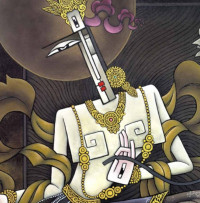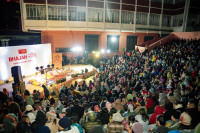Culture & Lifestyle
A group of activists strives to end forced imposition of the third gender label
Tired from forceful enforcement of the ‘third gender’ identity by both society and the state, young transgender activists have formed Trans Rights Collective to advocate for equal and inclusive rights for Nepal’s transgender population.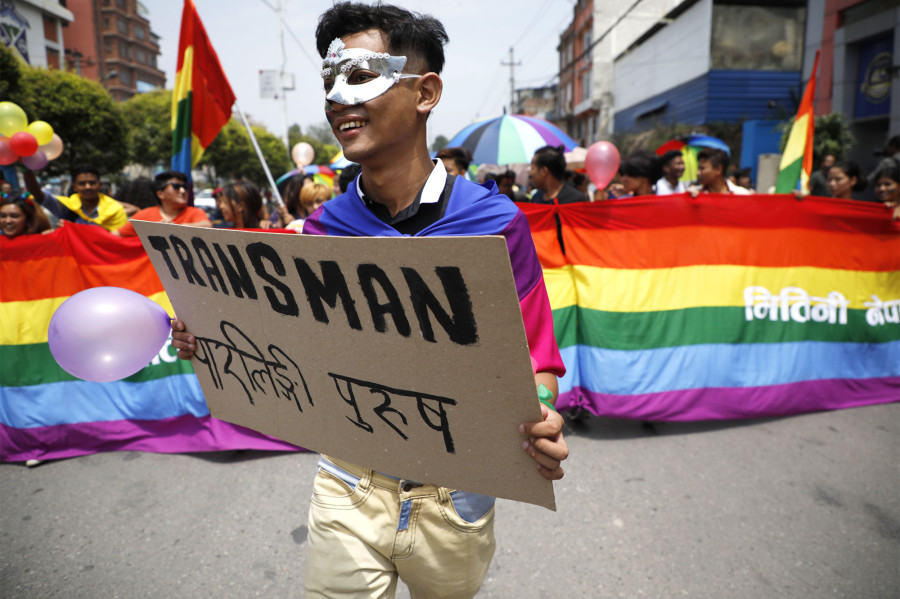
Ankit Khadgi
Rukshana Kapali never felt comfortable or liked the term ‘third gender’. She was 14 years old when she realised her gender identity, she says.
However, even when she identified as a woman since there were no legal provisions that allowed her to put the ‘female’ gender marker on her citizenship, she was compelled to use ‘others’ in her documents, she says.
“Then, I couldn’t really understand this unjust identification,” says Kapali, a transgender activist. “I was happy that I could at least have my preferred name, but I found it burdensome to put myself under the ‘others’ gender. Now, I realise its implications. I want to fight it.”
Her battle is arduous and ongoing. In May 2020, Kapali publicly renounced her citizenship, becoming the first Nepali trans woman to file an application asking for her to be addressed as ‘female’ on her legal documents.
“From being barred from registration at university to being subjected to extra surveillance at airports to being asked invasive questions at every desk—I have experienced a lot of humiliation since I got my citizenship,” says Kapali. “I want to be recognised as a woman and having ‘others’ written on my document means that I was seen as neither man nor woman—leading to constant misgendering,” she says.
Kapali’s rage against the enforcement of the ‘third gender’ identity is shared by many transgender people. And to break away from this forceful imposition, by both the state and society, Kapali along with four others have started Trans Rights Collective, a support group as well as an advocacy group for the transgender population.
“We saw a lack of a united front that was a voice for trans men and women. We are not third genders, we are men and women—and we needed a space for our voices to be heard and amplified,” say the members of the collective. “We are gathering, primarily through the internet and social media platforms, to have a conversation about the trans rights movement. Through various mediums, we want to raise the concerns of trans men and women.”
And while the collective, which started at the beginning of 2020, is still at its infancy, the mission of the group is clear: to create legal and social frameworks for the transgender population, who can live, work and identify with gender identity as per their own preferences.
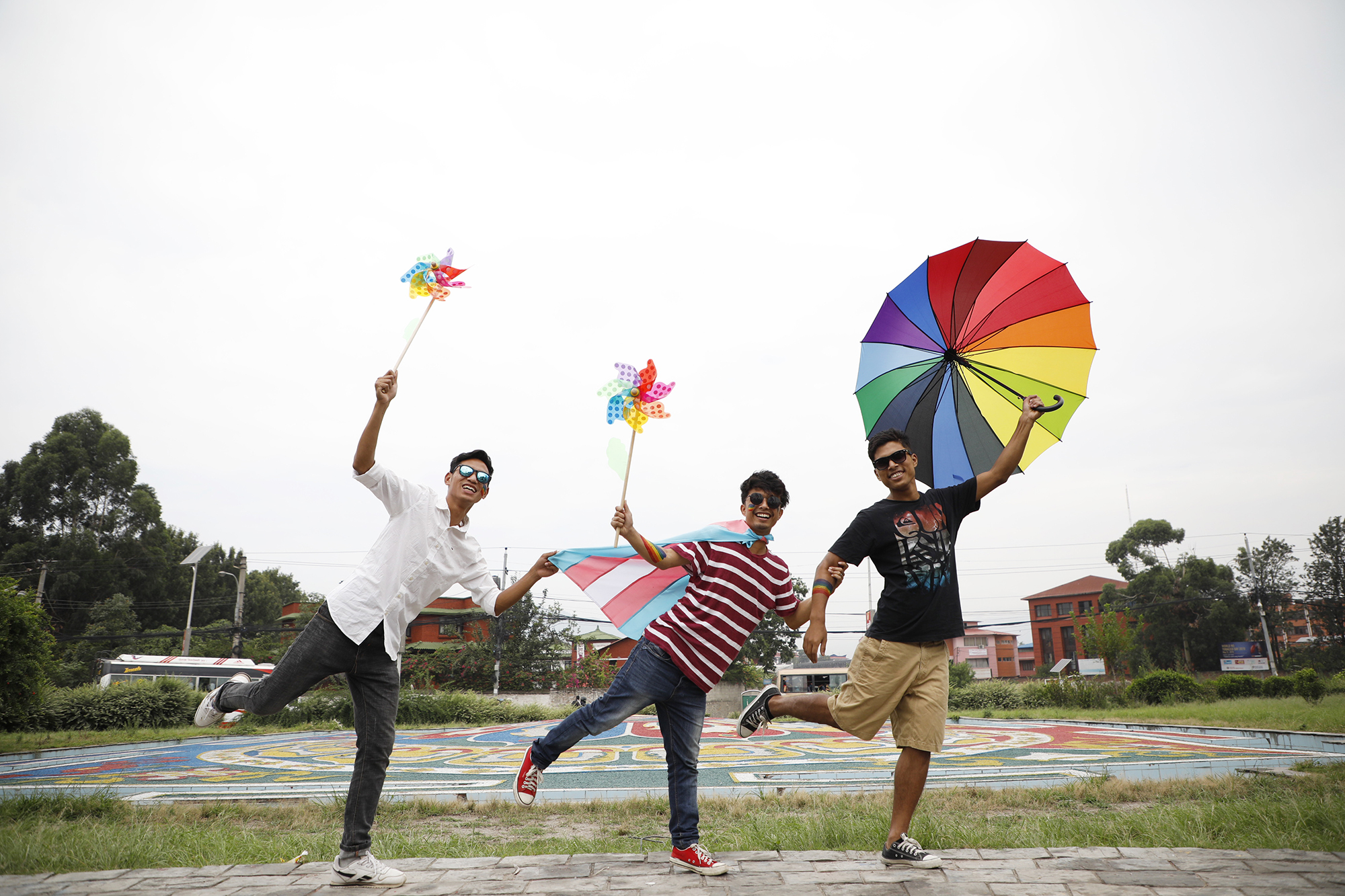
For years, many efforts have been made in Nepal for the queer movement by various activists. It has been 19 years that LGBTI rights activism commenced in Nepal. The country is often celebrated as a safe haven for queer people or PoMSOGIESC (people of marginalised sexual orientation, gender identity, and sex characteristics).
However, the ground reality is far from the one projected. Violence against transgender people is on the rise and often makes news. Some cases in the past have even culminated into cold-blooded murder. Likewise, transgender people are still denied equal rights to citizenship, marriage, property, and education.
And even within the already discriminated queer population, there is a hierarchy that is strongly held in Nepal. Cisgender gay men and third gender individuals are more privileged and have more rights than other identities on the queer spectrum; unlike transgender and non-binary people, they don’t have to struggle to get citizenship as per their preferred gender and exercise their fundamental rights, says Kapali. Hence, breaking away from the trinary concept of gender is also a major case of advocacy for the collective.
Article 12 of the Constitution of Nepal enshrines the provision of getting citizenship as per the gender identity the individual prefers. However, in 2012, a directive was issued by the Ministry of Home Affairs, as per the Supreme Court’s 2007 hearing of the Sunil Babu Pant & Others vs Government case, which enforced a provision that LGBTI individuals will only be granted citizenship with ‘others’ as a gender marker. This forced identification has been vehemently protested by trans men and women.
Despite the protests, however, in 2019, the State Affairs and Good Governance Committee of the Federal Parliament proposed a bill that seeks to continue the use of ‘others’ as a gender identity for people across the queer spectrum. The proposal also requires a medical certification as proof of a sex change operation to be eligible to obtain a ‘others’ gender marker.
The proposal showcased the state’s inability to differentiate between gender identity, sexual orientation, and sex characteristics, bounding queer identity into a single box, say members. If the bill is tabled, it will not only affect transgender people’s right to get citizenship with their preferred gender and name but will also deteriorate their mental and social wellbeing as well, they say.
“Being marked as ‘third gender’ has a direct impact on my identity, social and emotional well-being, and self-growth. It is basically imposing someone forcefully to live where they don’t belong to,” says Sagun Thapa Magar, a transgender man and a member of the collective. “The Supreme Court has ruled that gender identity is a subject of self-determination. But the government has curtailed this basic right.”
That’s why on March 31, commemorating International Transgender Day of Visibility, leading trans men and women across seven provinces of Nepal, Trans Rights Collective and Queer Youth Group, another queer-rights group, released a demand sheet titled National Transgender Demand Sheet demanding trans men be able to tick Male gender marker and trans women be able to select the ‘female’ gender marker, including several other concerns of language and privacy.
Likewise, in May, the National Charter of Demands on Legal Recognition of Gender Identity was also released by the collective, through which they have demanded the 2012 directive of the Home Ministry to be scrapped.
“It [the directive] is one of the most problematic legal documents. It defines ‘lesbian, gay, bisexual, transgender & intersex’ as ‘others’—conflating sexual orientation, gender identity, and sex characteristics. This directive further conflates ‘transgender’ and ‘third gender’. That’s why we’ve demanded this directive to be scrapped,” say the members of the collective.
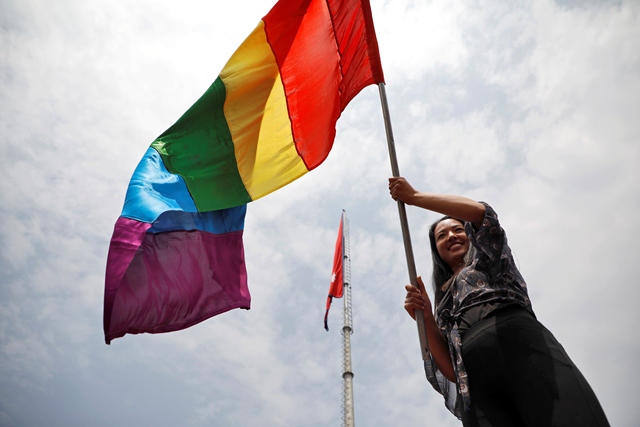
The provision will also have other far-reaching impacts. “Whenever I apply for a job, people demand my documents. When they look at me and my documents, they tell me it is fake because my lived gender and the gender I identify as is not reflected in my documents,” says Aaron Thapa, a trans man and also a member of the collective.
Thapa’s pain and struggle are echoed by other members, Noor KC, a trans woman, and Aayan Thapaliya, a trans man who equally endured difficulties in their lives, due to the predominant narrative of ‘third gender’, they say.
“I came out while studying Grade 11 and had to drop out because I could not change my documents to reflect my gender identity,” says KC. “The current legislation does not address me and forced me to enlist as a ‘third gender’ which is against my will, because I am a woman”.
Likewise, even the Nepali language had no terms, until 2018, that referred to transgender identity, leading people to address transgender people as tesro lingi (third gender), whether they identified as one or not.
“In the initial days of writing my blogs, I transliterated the term ‘transgender’ in Devanagari script when writing in Nepali. Around 2018, upon finding many other transgender folks who resisted the forceful imposition of the term ‘third gender’— we came out with the word ‘paralaingik’ to refer to transgender people in the Nepali language,” says Kapali, who has written a number of handbooks and dictionaries on gender and sexuality in both Nepali and Nepalbhasa.
Likewise, the members also believe that the media has played an equal role to suppress their voices and has contributed a lot of false information regarding the trans rights movement in Nepal, “The media was too quick to decide ‘transgender people being recognised as a third gender’. This whim also contributed to the misgendering of trans people,” say the members.
And that’s why, according to the members, this initiative is imperative, because, through this collective, all of them are advocating for transgender rights in Nepal, on which the discourses are often overlooked or conflated with the ‘third gender’ movement.
“Along with two other queer rights organisations, we are also gearing up for ‘Year of Action for Recognition of Gender Identity & Against Forced Others Gender Labelling 1141’—to take a more organised and channeled action against the imposed third gender identity. We kicked off the campaign on October 20, filing a complaint against the directive issued by the Ministry of Home Affairs stating that it violates the right of gender identity and human rights associated with it,” say the members.
But the fight has only just begun, says Kapali. “Wherever I have an agency, I’ve listed myself as female. Now the ongoing battle is to amend the citizenship,” she adds.




 20.12°C Kathmandu
20.12°C Kathmandu
